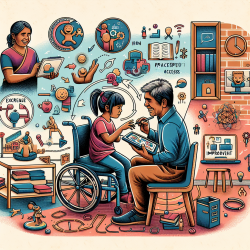Understanding the Research
The study developed an indirect tool known as the Academic Diagnostic Checklist - Beta (ADC-B), which helps in identifying the functions behind academic performance deficits. Researchers validated this tool by comparing interventions suggested by the ADC-B with those that were not. For three out of four participants, the interventions suggested by the ADC-B were the most effective in improving academic skills.Environmental Causes of Academic Failure
The study identifies five primary environmental causes for academic failure:- The student doesn’t want to perform the skill.
- The learner has not spent enough time doing it.
- They have not had enough help to do it.
- They have not had to do it that way before.
- The skill is too hard.
Implementing the ADC-B
The ADC-B tool can be a game-changer for educators and therapists. Here’s how you can implement it:- Conduct Functional Assessments: Use the ADC-B to identify the environmental factors contributing to academic deficits.
- Select Targeted Interventions: Choose interventions that are functionally matched to the identified causes.
- Validate and Adjust: Continuously monitor the effectiveness of the interventions and make necessary adjustments.
Encouraging Further Research
While the ADC-B has shown promising results, it is essential to conduct further research to validate its efficacy across different academic domains and student populations. Future studies should focus on:- Evaluating the predictive validity of the tool for various academic skills.
- Conducting psychometric analyses to assess the tool's reliability and validity.
- Exploring the tool's application within a Multi-Tiered Systems of Support (MTSS) framework.
Conclusion
The ADC-B tool offers a data-driven approach to selecting individualized academic interventions, significantly improving outcomes for children with learning challenges. By adopting this tool, practitioners can make more informed decisions, leading to better academic performance and overall development.To read the original research paper, please follow this link: Using Direct and Indirect Functional Assessments to Guide the Selection of Individualized Academic Interventions.










